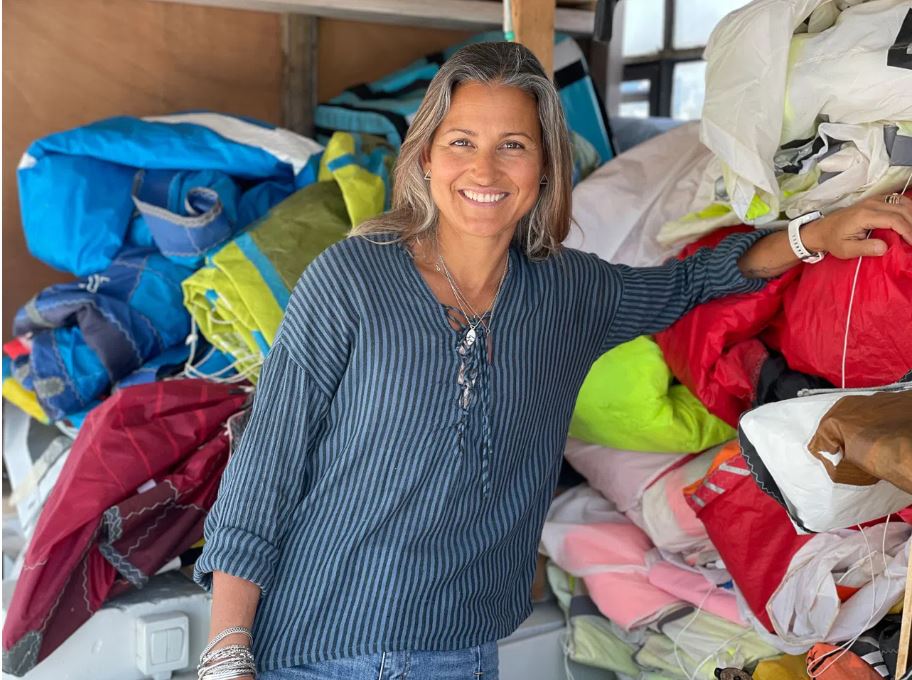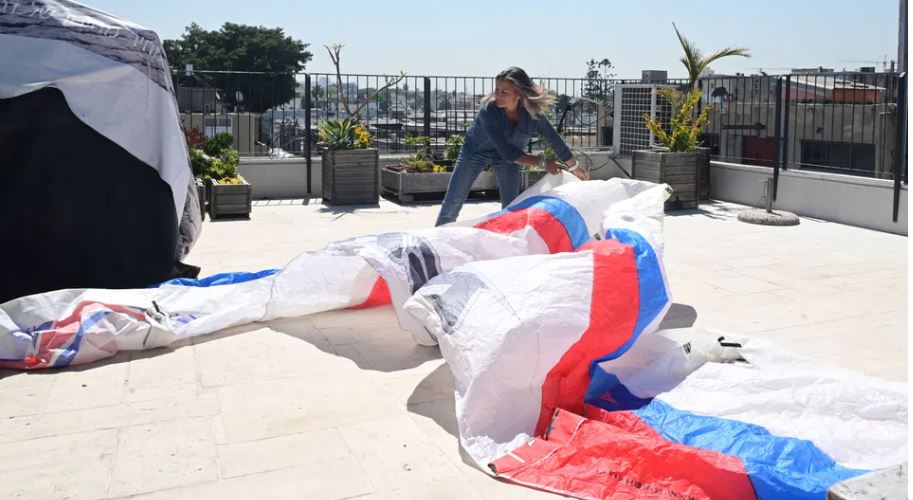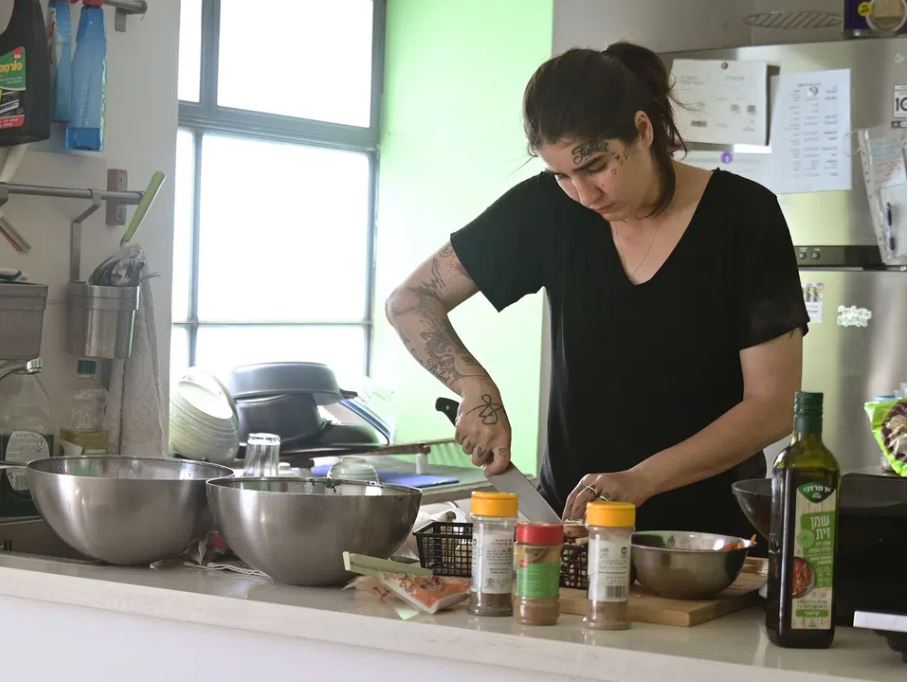Swiss woman helps former sex workers in Israel

Through backpacks made from old sails, Tabea Oppliger is offering women a way out of forced prostitution and back into the world of work.
It was an encounter with consequences: Oppliger was passing through Zurich’s red-light district with her six-week-old daughter and suddenly a woman approached her. “She was clearly a prostitute,” she says. The unknown woman asked: “May I kiss daughter?”
Oppliger said yes. “That kiss with lipstick on my baby’s head branded my heart at the same time.”
She took action. Oppliger, 45, who had completed further training as a sports masseuse, offered to give the sex workers massages. She saw how physically and psychologically stressful the women’s work was.
Work instead of pity
During her encounters, Oppliger heard the same sentence over and over again. “I don’t need pity, I need a job.” Only those who have prospects can leave forced prostitution. It was therefore clear to Oppliger that she wanted to close the gap between leaving and reintegrating into the labour market.
That was a good ten years ago. Today, she runs her social enterprise “KitePride” in Israel with her husband Matthias. It is also an upcycling project.
The production facility is located in an industrial building in the south of Tel Aviv. On two floors, employees sew bags, backpacks and accessories from old sails and parachutes.

“Thank you” is written on the labels of the bags. “You have provided a rehabilitation job for the person who sewed this bag.”
KitePride employs people who have already made the exit from forced prostitution. “At the moment we have 13 people with this background working for us,” Oppliger says.
High success rate
Most of the employees come from Eastern Europe, mostly from Ukraine and Russia. Oppliger founded KitePride in 2018 with her husband. “Since then, just over 35 people have been trained with us.”
At the very beginning, two or three people returned to prostitution, she says. “But otherwise everyone has stayed,” she says.
The company relies to a large extent on donations from Jewish and mostly church foundations. “The income at KitePride barely covers the production costs,” Oppliger says.
She soon realised that what KitePride offers is not enough. “There are so many former victims of human trafficking who need a job,” she says.
To help even more former victims of forced prostitution, Oppliger launched a social project. In courses, the participants learn everyday things: how to pay bills, how to apply for jobs, but also what rights they have. The goal is for them to regain their footing in life. For this project, Oppliger receives money from the Israeli government, among others.
Rescue before it’s too late
Tommy is one of the women who took part in this second project. The 29-year-old Israeli now works as a cook, among other things, for KitePride’s lunch table.
“I tried to get out [of prostitution] several times,” says Tommy. In the end, it always failed because of financial problems. It was only with the people at Tabea Oppliger’s that she was ready to do so.

The fact that Oppliger stands up for people like Tommy is also due to her faith. Like her husband, she grew up in a free church family in Papua New Guinea. Her parents were missionaries there.
The free church influence is central for Oppliger, who says her faith is “an anchor”. “I grew up with the idea that one should love one’s neighbour out of conviction,” she says.
She does not want to convert anyone. “In Israel, proselytising is forbidden anyway. I’d have to leave the country right away.”
Start-up paradise Israel
But why start her business in Israel? “Switzerland is not a place where innovation is welcomed. I think I’d still be waiting today for all the certificates needed to be taken seriously.”
That her choice fell on Israel was ultimately a coincidence. “In Israel there is a start-up culture, a breeding ground for pioneering ideas.”
But not everything runs smoothly in Israel either, as she has noticed over the years. “All the bureaucracy has gone over our heads.” Although she now speaks fluent Hebrew, it is difficult to understand the system.
Meanwhile, the family’s visa has expired. The Oppligers have applied for a residence permit. They have been waiting for the decision for months. But provisions have been made. “We have hired a manager for the company, an Israeli, who will run the whole thing locally.”
If the decision of the Ministry of Interior is negative, Oppliger wants to commute between Switzerland and Israel.

In compliance with the JTI standards
More: SWI swissinfo.ch certified by the Journalism Trust Initiative








You can find an overview of ongoing debates with our journalists here . Please join us!
If you want to start a conversation about a topic raised in this article or want to report factual errors, email us at english@swissinfo.ch.